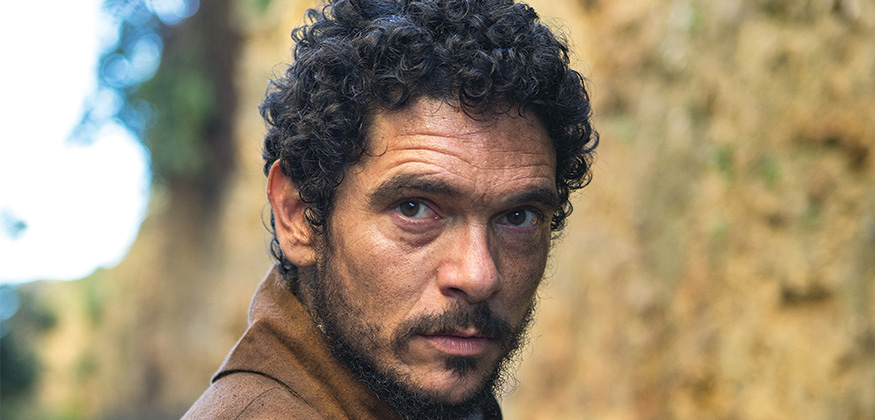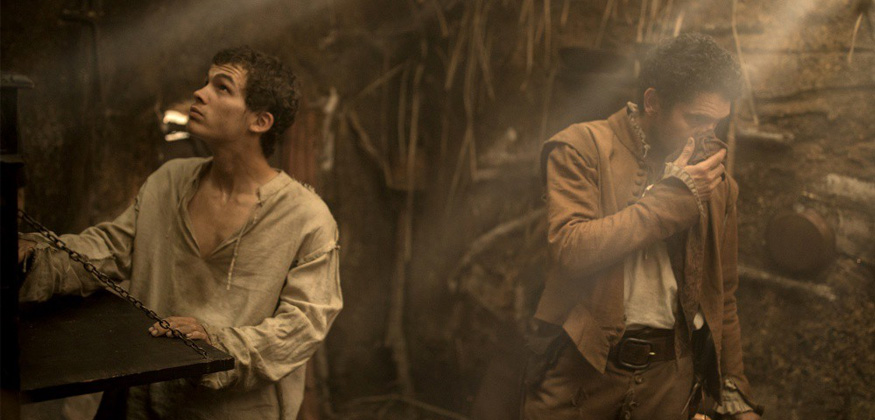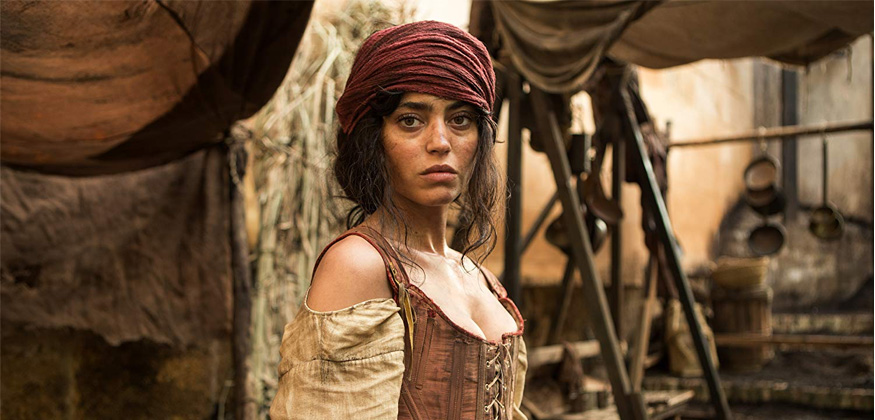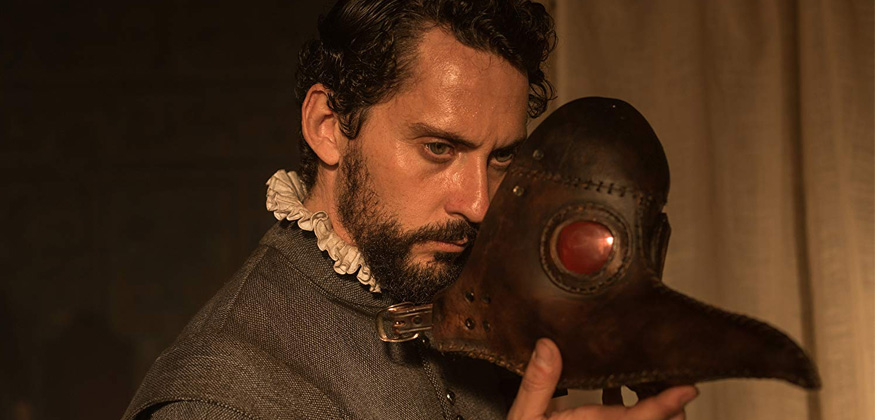
After all those moody Scandinavian crime dramas, as well as Nordic-inspired shows from France, Canada and even Wales, BBC Four is changing tack with its Saturday night crime offering. On Saturday 1 September at 9pm the station will be airing The Plague, a Spanish historical crime show set in Seville in 1597.
As the title suggests, the city is beset by an outbreak of bubonic plague. Mateo Núñez, played by Pablo Molinero, has returned to the city to try and rescue his friend’s illegitimate son. It’s something he promised to do for his dead compadre. Once a soldier, Mateo has one problem – he’s one of the enlightened who has been sentenced to death by the Inquisition for printing books the Church disapproves of. While Mateo searches for the boy and tries to avoid arrest, the Inquisitor Celso de Guevara (Manolo Solo) is taken and shown the body of a murdered man whose hands are grasping a cross.
People have been arriving in the city hoping to travel on to the New World, the plague is claiming more and more victims, but another killer is also on the loose. When Mateo is eventually caught by the bailiffs, he’s brought before Celso. Instead of sending him to his death, the Inquisitor forces Mateo to investigate a series of murders that have occurred in the city. The first of them is that of a merchant, and his friend’s teenage son, Valerio (Sergio Castellanos), becomes his partner in the endeavour. If Mateo solves the crime he’ll be allowed to live – the ultimate crime fiction ultimatum.
Written by Rafael Cobos and directed by Alberto Rodriguez, The Plague was broadcast as La Peste in Spain starting in September 2017. Before the six-episode series had finished a second season was confirmed. It has a noir-ish, grimy and dangerous feel to it, laced with a touch of horror. The muddy side streets, desperate peasants and fetid copses being piled for burning are juxatposed with the great wealth of the Church and of the city’s traders. These forces using superstition and religion to exert their power, and in doing so might actually be exacerbating the spread of the pestilence. Indeed, it’s hard to tell whether it is the Church that is more sinister or the show’s antagonist. There’s certainly a hint of Umberto Eco’s brilliant The Name of the Rose about it. Tune in and tell us what you think.












This sounds sooo good. I will watch for it!
Looks good , I see it’s available on BBC iPlayer. Will watch the first2 available episodes & come back with a rating. Lol!
Missed a small part of the first episode, but quickly caught up. Brilliant programme, can’t wait to see the next two episodes next Saturday.
Very impressive spanish drama.Engrossing first 2 episodes will continue to watch the complete series.Beautifully filmed production.
Its excellent and strangely underplayed by the main press which has hardly touched it as they do for most of the Saturday series. Seems to a be feminist anti-agenda (and religious one too?). But it is excellently done for atmosphere and historical feel, and its subversive message (anti-Church and establishment).
I have just watched the last 20 minutes of this programme and I couldn’t leave the room, it was spellbinding. I love historical features and this is so realistic, especially when people were burned by the inquisitor. I definitely intend to go back on iplayer to watch yhe series.
I think your comment is open to misinterpretation unless you definitely enjoy watching people being burned to death in graphic detail. I think that scene was meant to shock, not excite. Would you have been one of the jeering crowd gaining sadistic pleasure?
get over yourself social justice warrior,its entertainment.surely there are more important causes you realy dont care about to be outraged about,more graphic burnings please.oh no ,thought police
@Keiththe irony is your judgmental attitude and presumptions mean YOU would be the one in the jeering crowd.
Watched it. It reminded me so much of the appalling Spanish TV series ‘I Know Who You Are’. What I saw of the depiction of 16th C Seville was an improvement on UK efforts in showing the horrors of the urban environment back then, but much of it was filmed in the dark, no doubt realistic in terms of real 16th C lighting but not enlightening for viewers. Plenty of shots of Deeply Meaningful Expressions without sufficient support from characters’ actions or the dialogue to anchor the DMEs to anything. Something cultural must have got lost in translation to subtitles.